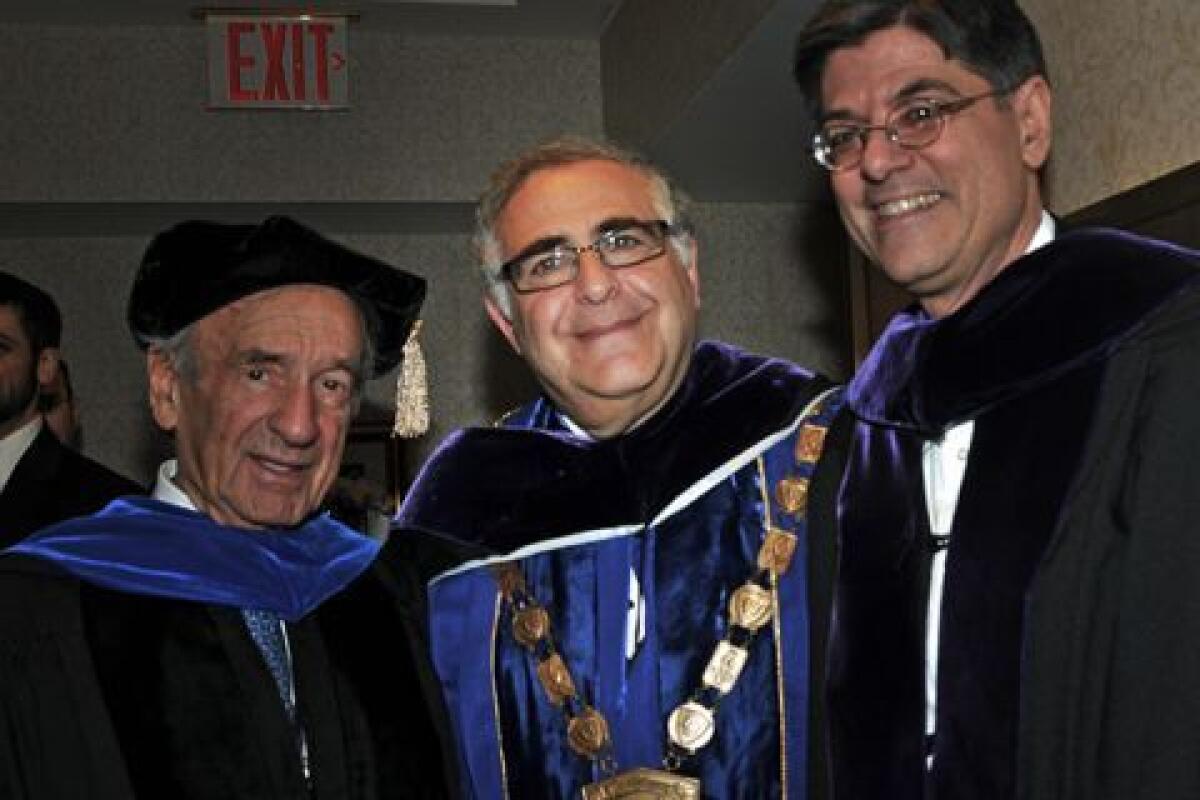How risky investment bets helped cripple a major university

- Share via
Yeshiva University in New York fessed up years ago to having lost more than $100 million in Bernard Madoff’s Ponzi scheme.
But it was hard to blame the leadership of the prestigious Jewish institution for that misstep, given how many other prominent wealthy investors lost money in the scam.
But as Steven I. Weiss of the Jewish Channel documents in an astounding investigative piece produced and published by takepart.com, the full story is much, much worse. Yeshiva has lost hundreds of millions through investments in risky hedge-fund investments, all approved by board members with a taste for risk.
Formerly one of the most comfortably endowed institutions of higher learning in the country, Yeshiva’s credit rating was downgraded to junk earlier this year by Moody’s.
Weiss reported that the university’s financial reversal comes to more than $1 billion since new leadership took over in 2002 -- a $500-million loss on risky investments -- and more than $500 million in debt.
Some of the risky investment practices were introduced by Yeshiva’s pre-2002 leadership under the scholarly and conservative Rabbi Norman Lamm, Weiss reported. But they really took off under his successor, former Hillel President Richard Joel.
“Once the old leadership was fully locked out of the room, the younger generation playing with Yeshiva’s money started really gambling big,” Weiss said.
Yeshiva has had to sell off some of its valuable Manhattan real estate, is trying to pare faculty by encouraging retirements, and has given up control of its Albert Einstein College of Medicine to save money. Yet it’s still at risk of running out of cash next year, Moody’s reported.
The whole sorry mess resembles that of California’s Getty Trust, which we revealed in 1997 to have lost a staggering $400 million by playing with derivatives in 1995 and 1996.
In the Getty’s case, as in Yeshiva’s, the investment advice came from friends on the inside: The Getty’s investment was pushed by board member John C. Whitehead, a former co-chairman of Goldman Sachs. At Yeshiva, at least five board members were also managing money in its endowment, an arrangement that Weiss contends should been barred by conflict of interest policy.
The key to the university’s losses was the rapid increase in hedge-fund and other “alternative” investments after 2002, accompanied by a rapid sell-off of counterbalancing safe investments such as U.S. Treasury securities, Weiss reported. The imbalance led to disaster in the downturn of 2008. The Madoff investment turned out to be the least of Yeshiva’s problems.
Keep up to date with The Economy Hub by following @hiltzikm
More to Read
Inside the business of entertainment
The Wide Shot brings you news, analysis and insights on everything from streaming wars to production — and what it all means for the future.
You may occasionally receive promotional content from the Los Angeles Times.











